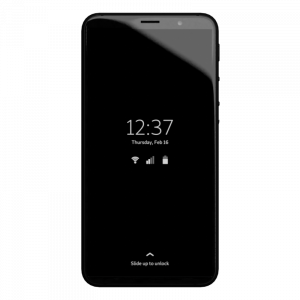From the Browser to the Bloodstream
Purism
Latest posts by Purism (see all)
- A Quarter Century After Cyberselfish, Big Tech Proves Borsook Right - December 20, 2025
- PureOS Crimson Development Report: November 2025 - December 15, 2025
- Purism Liberty Phone Exists vs. Delayed T1 Phone - December 10, 2025
23andMe DNA Fallout: When Your Genetic Data Becomes a Bankruptcy Asset
When a company collapses, its debts and assets are carefully tallied, auctioned, and parceled out. But what happens when the “asset” is your very DNA? Millions of 23andMe customers now face this unnerving question as the genetic testing company enters bankruptcy [1].
California’s Attorney General, Rob Bonta, issued a rare consumer alert this week, urging people to delete their genetic data from 23andMe’s platform before it could be swept into a bankruptcy sale [3][4][5]. His warning was stark — genetic information, once sold or exposed, cannot be revoked. Unlike a credit card number or password, your DNA cannot be reset. Once your genetic information is shared, sold, or exposed, it is irreversible.
Note: It is safe to assume that even requesting a delete will unlikely yield a hard delete and purge of your records where they no longer exist. It is far more likely the request would go unanswered (they are in bankruptcy after all), or if answered would be simply setting a delete flag or timestamping the record as deleted, but leaving all the actual records still to be sold or transferred
This is not just another data breach story. While outlets like CSO Online: Biggest Data Breaches have tracked massive leaks of financial and personal records, your genome is far more intimate. It carries the code of your ancestry, your health predispositions, and the blueprint of your family connections. Once that information is out in the world, there’s no taking it back. This is the most intimate personally identifiable information imaginable: the code of your ancestry, your health predispositions, your family ties.
The 23andMe bankruptcy is a stark reminder that our biology is uniquely personal—and should never be treated as a commodity.
Bankruptcy as a Privacy Hazard
Bankruptcy is not just a financial process — it is a marketplace. Assets are gathered, valued, and sold to satisfy creditors. In the case of 23andMe, one of the most valuable “assets” is its database of over 15 million genetic profiles [4][5].
Here’s where the danger lies:
- Data as Collateral: Bankruptcy courts often treat customer data as a transferable business asset. Privacy policies, like 23andMe’s, explicitly state that personal information “may be accessed, sold, or transferred” in the event of bankruptcy [4].
- Unexpected Buyers: Once data enters the bankruptcy pipeline, it can be acquired by entities far removed from the original service — pharmaceutical firms, insurers, data brokers, or even foreign corporations with opaque motives. Consumers rarely have visibility into who ends up with their information.
- Fragmented Oversight: While a Consumer Privacy Ombudsman may be appointed to review the sale [3], the patchwork of U.S. privacy laws leaves massive gaps. HIPAA does not apply to direct-to-consumer DNA testing companies [2], and state laws vary wildly.
- Permanent Exposure: Unlike passwords or credit cards, genetic data is immutable. If it is transferred, misused, or leaked, the consequences ripple across generations — affecting not just the individual, but their relatives and descendants.
As one legal scholar noted, if genetic data “fell into the wrong corporate hands, it could be used in ways customers never intended — from higher insurance premiums to warrantless law enforcement access” [2].
Purism’s Angle: Data Sovereignty at the Cellular Level
At Purism, we have always argued that data sovereignty is not an abstraction. It is the right to decide what happens to your information — whether that’s a browsing history, a contact list, or, in this case, the literal strands of your DNA.
- Your biology should never be monetized. The idea that a bankruptcy court can treat genetic data as a tradable commodity is a grotesque distortion of privacy rights.
- Smartphones must be gatekeepers, not siphons. Health data should remain encrypted, local, and under your control. Devices should protect you from surveillance capitalism, not funnel your most intimate details into it.
- Consent must be sacred. Genetic Information Privacy Act requires opt-in consent before genetic data can be sold. That principle should be universal: no sale, no transfer, no “asset liquidation” without explicit, informed permission.
The Broader Lesson
The 23andMe fallout is not just about one company’s failure. It is a warning flare for the entire digital ecosystem. If we allow corporations to treat our biology as a tradable asset, then nothing is off‑limits.
Purism’s mission is to build technology that resists this logic — technology that enshrines sovereignty, privacy, and dignity at the architectural level. Your smartphone should be a shield, not a siphon. Your data should be yours, not a line item in someone else’s bankruptcy filing.
The collapse of 23andMe is a tragedy for trust, but it is also a call to action. We must demand systems that honor the sanctity of our information — from the browser to the bloodstream.
References:
- Bloomberg Law: 23andMe Nets Approval of Data Breach Settlements in Bankruptcy [1]
- Kiwa Radio: UI Law Professor Calls For New Privacy Protections For Genetic Data [2]
- Loeb & Loeb: 23andMe Bankruptcy Sparks Data Privacy Concerns [3]
- DW: 23andMe: Privacy Risks of Gene Data Being Sold or Leaked [4]
- Fierce Healthcare: 23andMe Bankruptcy Sparks Genetic Data Privacy Concerns [5]
- CSO Online: Biggest Data Breaches
Purism Products and Availability Chart
| Model | Status | Lead Time | ||
|---|---|---|---|---|
 | Librem Key (Made in USA) | In Stock ($59+) | 10 business days | |
 | Liberty Phone (Made in USA Electronics) | In Stock ($1,999+) 4GB/128GB | 10 business days | |
 | Librem 5 | In Stock ($799+) 3GB/32GB | 10 business days | |
 | Librem 11 | In Stock ($999+) 8GB/1TB | 6+ weeks | |
 | Librem 14 | Out of stock | New Version in Development | |
 | Librem Mini | Out of stock | New Version in Development | |
 | Librem Server | In Stock ($2,999+) | 45 business days | |
 | Librem PQC Encryptor | Available Now, contact sales@puri.sm | 90 business days | |
 | Librem PQC Comms Server | Available Now, contact sales@puri.sm | 90 business days |
Recent Posts
Related Content
- A Quarter Century After Cyberselfish, Big Tech Proves Borsook Right
- Landfall: A Case Study in Commercial Spyware
- EvilAI Malware Exploits AI Targets Organizations Worldwide
- Sound Recorder App Now Available
- AWS Outage, Purism’s Answer is clear: Decentralize, Localize, and Empower Users to Own Their Digital Lives


